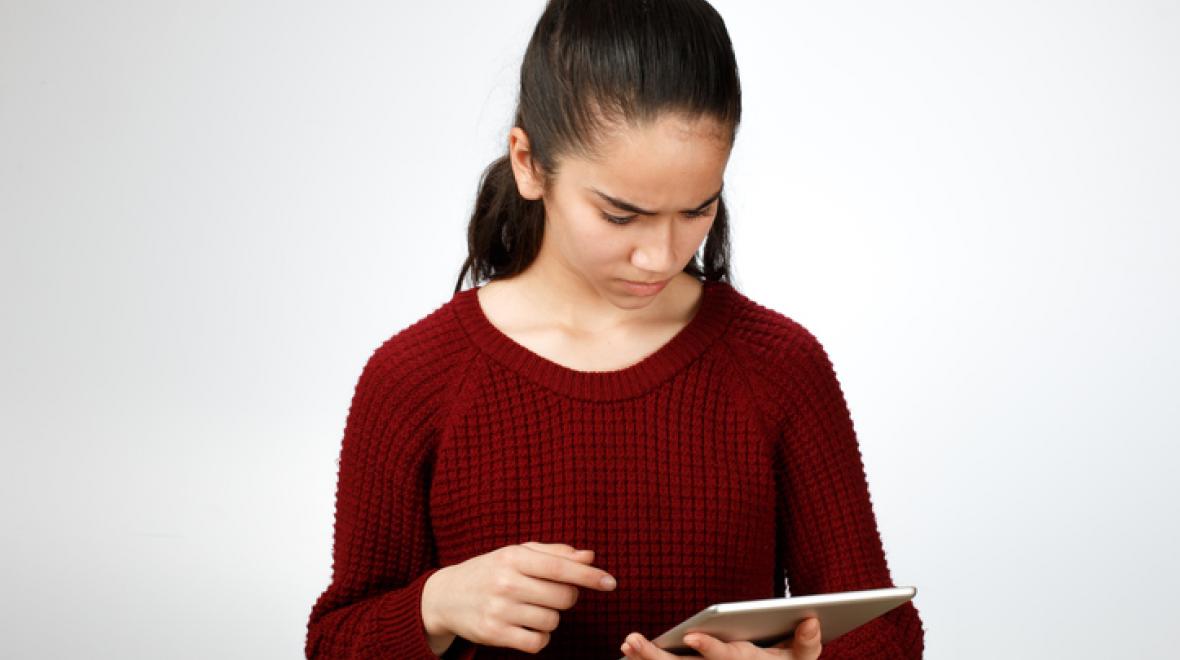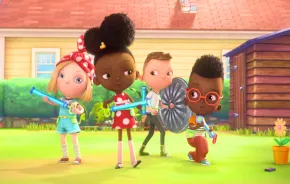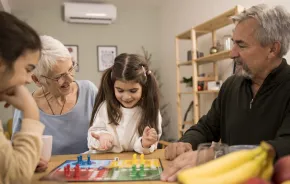
Recommended reading
Devorah Heitner recommends this Teen Vogue article for older children and, for kids of all ages, Hey Kidz! Buy This Book! A Radical Primer on Corporate and Governmental Propaganda and Artistic Activism for Short People. For parents, she suggests It’s Complicated: The Social Lives of Networked Teens.
I wasn’t surprised to learn news negatively affects children’s moods. I nodded my head in agreement when I read that tweens are more likely than teens to say that news makes them feel afraid (45 percent versus 31 percent, according to Common Sense Media’s latest report "News and America's Kids: How Young People Perceive and Are Impacted by the News"). My tween definitely is more adversely affected by news headlines than my teen is!
“News and America's Kids” shares the results of a January 2017 survey of 853 U.S. children, ages 10 to 18. The survey found kids are being fooled by fake news. Less than half (44 percent) said they feel that they can tell fake news stories from real ones, and 31 percent of kids who shared a news story online in the last six months said they've later found out a story they shared was wrong or inaccurate.
Kids also see gender and racial bias in the news and feel underrepresented. Half of kids said that when they see nonwhite kids in the news, it's in a negative light and/or related to crime and violence.
The finding that least surprised me — that news affects kids' moods — also reminded me that I'm responsible for helping my kids become media literate adults. I've got to help them deal with feelings that arise from consuming news.
To do this better, I talked with Devorah Heitner, author of a recent Washington Post story about helping kids make sense of the media. Heitner is also the author of the book Screenwise: Helping Kids Thrive (and Survive) in Their Digital World and founder of Raising Digital Natives. (ParentMap spoke with Heitner about both in October 2016.)
The home page on our family computer is MSN. My 12-year-old often comments on the stories that appear in the news feed. Sometimes she’s visibly distraught. How do I guide her?
First, think about changing the home page [and explain why you did this]. Much like you’re going to eat what you stock your refrigerator with, what’s on your home page is going to affect her. Yes, she’s old enough to see some headlines, but think about this from a mental health perspective. You see stress, so restrict your home page to something less stressful. Ponder how you need to be ready to look at the news, and help her think about this idea. …Your daughter should know that headlines and images are all about getting her to click — that’s clickbait.
Why do we need to teach our kids how to spot fake news? How do we do this?
We clearly don’t want our children to be influenced by fake news, but we also don’t want to undermine their curiosity by making them feel like idiots. [When your child shares fake news with you] try saying, ‘I’m so glad you care about what’s going on in the world. It looks like this person is trying to trick us.’
Explain to them that we need to look at our news sources carefully. If we’re looking at a major publication like The Washington Post or The New York Times or your local city paper, we know these articles went through a lot of editors and a fact-checking process. These publications will retract facts if they turn out to be false.
I always look for the source behind the source. Where did the writers get their facts from? … And if you are [consuming] a one-person website or a YouTube brand, you definitely need to ask this question. It’s different to read a conservative editorial in Wall Street Journal than to read someone’s rant on their personal blog. I blog and I’d expect someone to hold that up to a different light than The New York Times article that I wrote that has been edited and fact-checked.
How do we help our kids deal with the feelings that can come with reading or watching the news?
We need to model balance to our kids by taking breaks from the news cycle. I’ve been watching a new TV series for fun and reading more novels. I’ve also been participating in more political activism, but I’ve been balancing this by seeing my friends and focusing on family time.
How do help our kids grown into media literate adults?
I believe in getting kids involved in the hands-on, creative process of making media. Then they see what goes into it … Have them work on the school newspaper. Then they know what it’s like to need to convince an editor that something is newsworthy. Perhaps they also see how much work it is to write an article and go through that editing to print process. Maybe they’ll say, 'Wow, that was so much more work than I thought it would be!'
Or they might have the opposite experience: It was so easy to make a compelling video and pop it up on YouTube. Then while watching an online video, they’re thinking about what’s behind the making [of] it, too.
[Remember] that how we consume digital media is different than how we consumer print. Often we are reading print papers and books together. We should try to do the same thing with digital media: Read it together when possible. Or watch the news together on TV. Yell at the television together when the news upsets you. Be united instead of everyone looking at their own media on their own devices.











